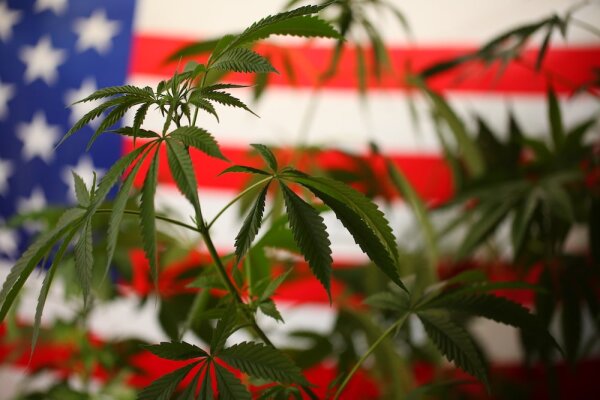Overcoming the Challenges of Marijuana Legalization in the United States

07/07/2023
Marijuana legalization in the United States has seen a surge of support from the public, with 23 states legalizing recreational use. However, despite the growing momentum and approval for ending the federal ban on cannabis, significant challenges remain that impede national marijuana legalization. From political opposition to regulatory complexities and conflicting state-federal laws, several barriers must be addressed in order to achieve a unified approach to cannabis reform.
Political resistance is one of the major challenges facing national marijuana legalization, as prominent politicians have yet to embrace the idea. This lack of priority among key decision-makers makes it difficult to pass comprehensive federal legislation. Regulatory complexities and conflicting laws further complicate the issue, posing barriers for cannabis businesses in areas such as taxation, banking, and interstate commerce. A cohesive regulatory framework must be established in order to resolve these conflicts and facilitate smoother operations within the cannabis industry.
Public perception and stigma are also significant issues that need to be addressed in order for national legalization efforts to be successful. Although attitudes towards marijuana are becoming more accepting, misconceptions about its potential harms still prevail which impacts public opinion and policy decisions. Ongoing education and awareness campaigns are necessary to destigmatize cannabis use and highlight its many potential medical benefits and economic opportunities.
The existing economic landscape surrounding marijuana is also a hurdle that must be addressed in order for the industry to reach its full potential. Due to federal prohibition, companies operating within state-legal frameworks often face limited access to banking services, high tax rates, and restrictions on interstate trade. These factors can make it difficult for businesses to thrive, hindering their growth and profitability.
Finally, international drug control treaties complicate the path toward national marijuana legalization. These agreements classify cannabis as a controlled substance; therefore, reform efforts must take into account both domestic policy priorities and international obligations in order to ensure successful outcomes.
Overall, although progress is being made on the state level, the national legalization of marijuana faces a number of significant obstacles. Political opposition, regulatory complexities, public stigma, conflicting laws, economic issues, and international considerations must all be taken into account in order to move closer toward a more unified approach to cannabis reform. With continued advocacy, education, and evolving public opinion it remains possible to overcome these challenges and enact successful federal legislation.
Reference
Political resistance is one of the major challenges facing national marijuana legalization, as prominent politicians have yet to embrace the idea. This lack of priority among key decision-makers makes it difficult to pass comprehensive federal legislation. Regulatory complexities and conflicting laws further complicate the issue, posing barriers for cannabis businesses in areas such as taxation, banking, and interstate commerce. A cohesive regulatory framework must be established in order to resolve these conflicts and facilitate smoother operations within the cannabis industry.
Public perception and stigma are also significant issues that need to be addressed in order for national legalization efforts to be successful. Although attitudes towards marijuana are becoming more accepting, misconceptions about its potential harms still prevail which impacts public opinion and policy decisions. Ongoing education and awareness campaigns are necessary to destigmatize cannabis use and highlight its many potential medical benefits and economic opportunities.
The existing economic landscape surrounding marijuana is also a hurdle that must be addressed in order for the industry to reach its full potential. Due to federal prohibition, companies operating within state-legal frameworks often face limited access to banking services, high tax rates, and restrictions on interstate trade. These factors can make it difficult for businesses to thrive, hindering their growth and profitability.
Finally, international drug control treaties complicate the path toward national marijuana legalization. These agreements classify cannabis as a controlled substance; therefore, reform efforts must take into account both domestic policy priorities and international obligations in order to ensure successful outcomes.
Overall, although progress is being made on the state level, the national legalization of marijuana faces a number of significant obstacles. Political opposition, regulatory complexities, public stigma, conflicting laws, economic issues, and international considerations must all be taken into account in order to move closer toward a more unified approach to cannabis reform. With continued advocacy, education, and evolving public opinion it remains possible to overcome these challenges and enact successful federal legislation.
Reference







